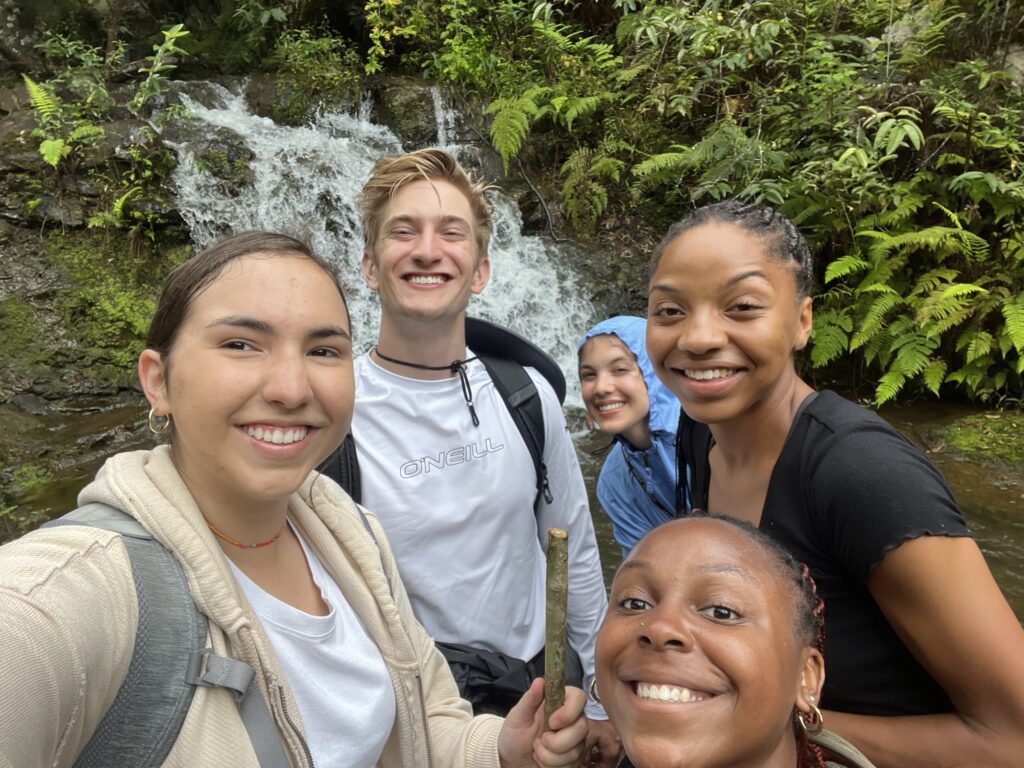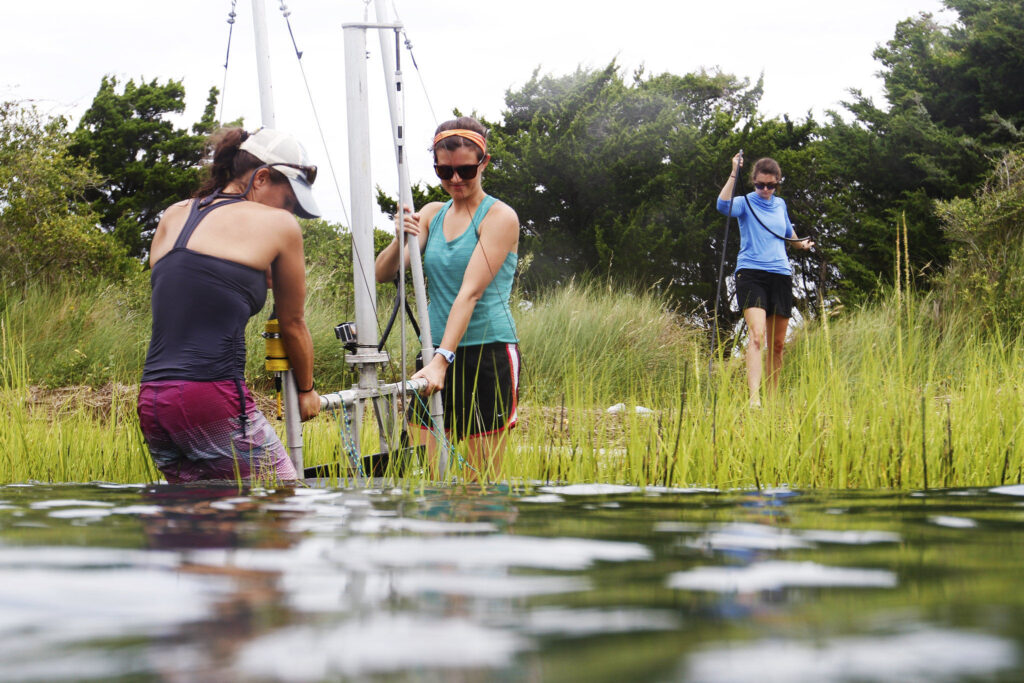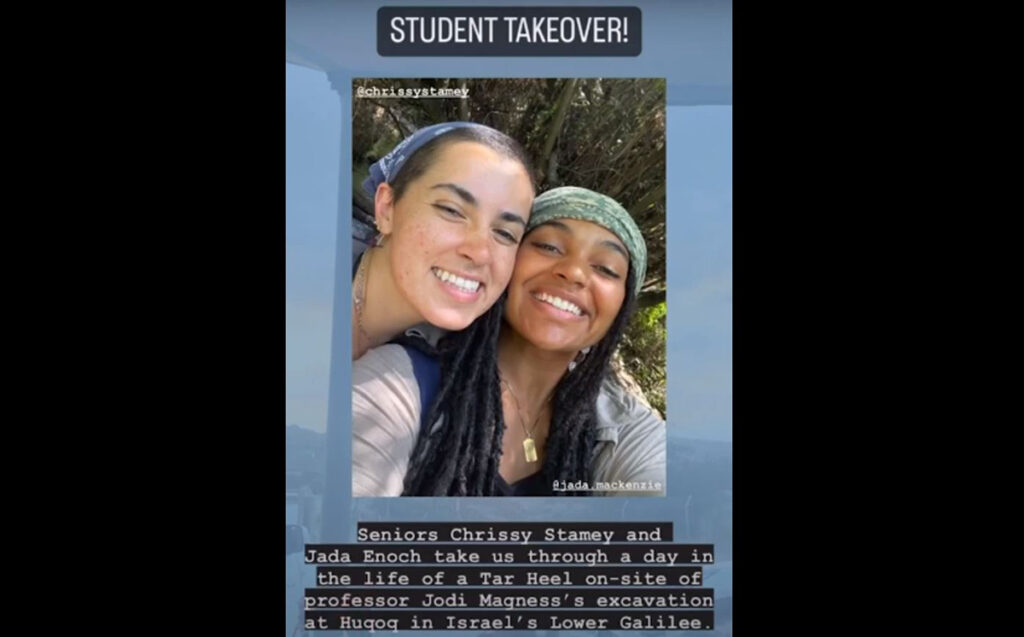Lois Lovelace Duke establishes professorship to pay it forward for future scholars
October 9, 2024
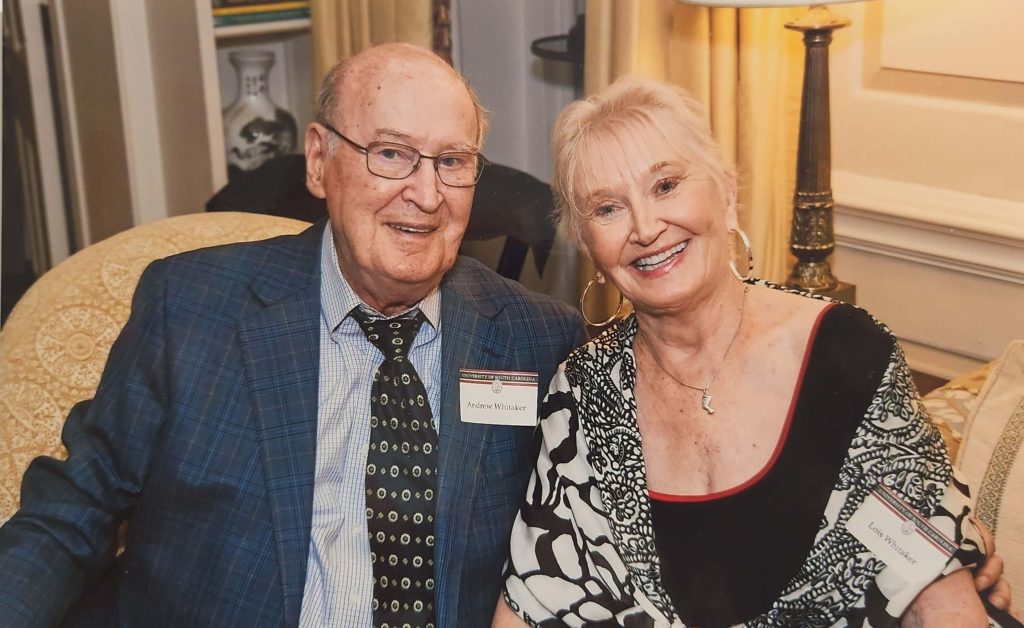
Lois Lovelace Duke (right) at a 2018 reception at the president’s house, University of South Carolina.
Through establishing the Lois Lovelace Duke Distinguished Professorship at UNC, Lois Lovelace Duke drew on her own experience in academia and offered advice for future recipients of the professorship:
“The academic world is full of opportunities, but it also brings its challenges,” Duke said. “But every challenge can be faced in a positive way. Search your heart and recognize the important role that you can have.”
Duke has had a long and illustrious career in higher education. After earning her Ph.D. in political science from the University of South Carolina, she began teaching at Auburn University before moving to the University of Alabama and Clemson University. She then served as a professor and chair in the department of political science and international studies at Georgia Southern University.
Pursuing a career in academia as a woman came with its difficulties. Duke said the key to breaking into male-dominated spaces was to take advantage of all opportunities, even the small ones.
“You have to meet with people, present your ideas and go from there,” she said.
These challenges were not the only adversity she would face. “When I entered academia, I was told it’s not just about teaching, research and service,” Duke explained. “I quickly learned it’s also about balancing sharing your own ideas and being willing to encourage and listen to others.”
Duke was inspired to establish the Lois Lovelace Duke Distinguished Professorship, which will be used to recruit or retain faculty in the UNC department of political science.
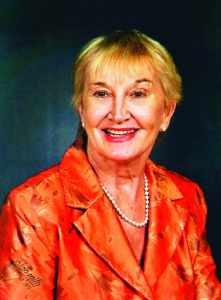
Mark Crescenzi, department chair and political science professor, said: “Professor Duke was a pioneer in our field and paved the way for future women in academia. For a scholar of her stature to invest in UNC political science is a huge vote of confidence in us and a responsibility that we take seriously. This professorship will be an important part of our mission to remain one of the best political science departments in the world.”
Although Duke has had a notable career in higher education, she never attended or taught at UNC. So, what encouraged her to give to the College?
“Although some of my relatives attended UNC, I made my own decision to donate because Carolina is a school that believes in the arts and sciences and teaching students to ask questions,” she said.
Duke has met many of the faculty from the department over her years of teaching, including political scientists Pamela Conover, Virginia Gray and Stuart Macdonald, who are all now emeritae faculty. She admires their work and passion and the research being done in the department.
“When I first learned of Professor Duke’s interest in endowing a gift to our department, I was floored,” Crescenzi said. “For her to select our program was an affirmation of all of our hard work over the years.”
Duke said she was motivated to give back because of the mentors she had when she was a student. Those professors and mentors served as the catalyst for her interest and perseverance in the field.
“I came through a political science program that was rich with faculty resources and dedication by the leadership, so I hope this professorship will do for the people at UNC what it has done for me,” she said.
Duke added that she recognizes the importance of philanthropic support in paving the way for recipients of the professorship and for the students that faculty teach.
In overcoming challenges during her own career, Duke has immense hope for the future of higher education and the recipients of this professorship, adding: “I never felt like I had a job — it was too much fun!”
By Ashlyn Coelho-Allen ’16

